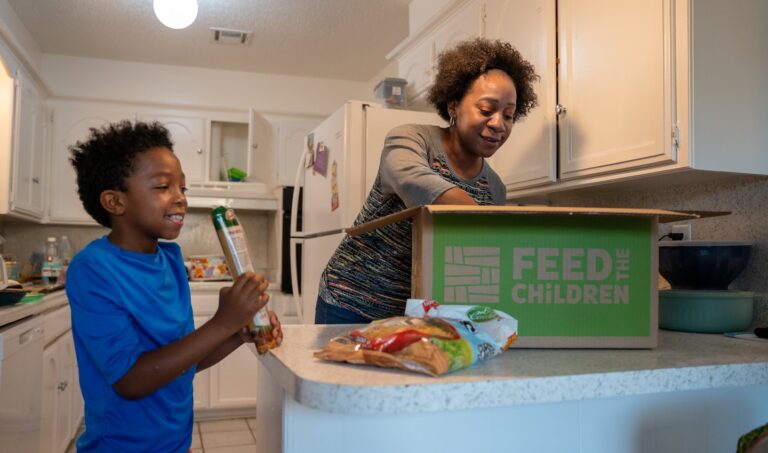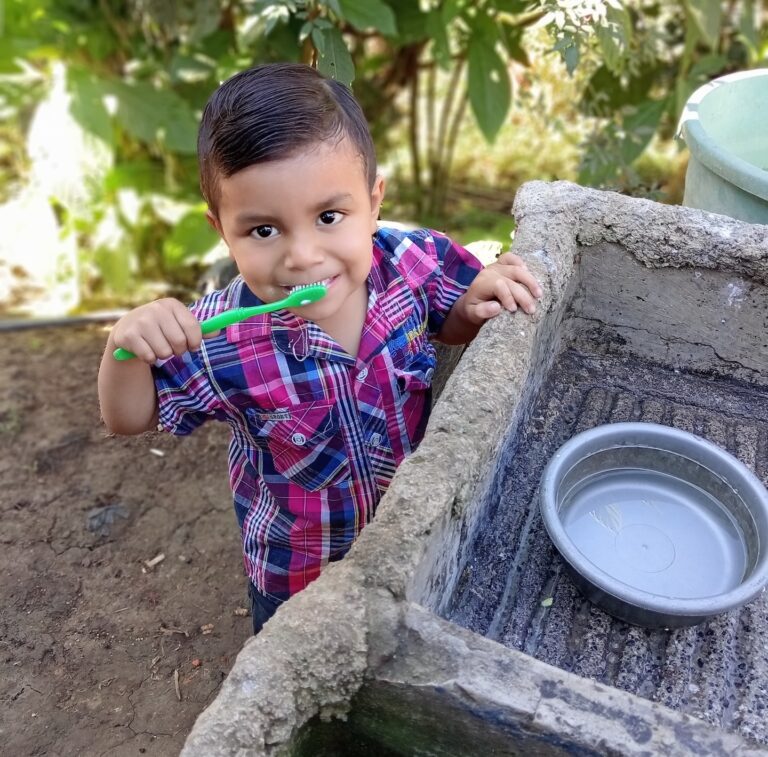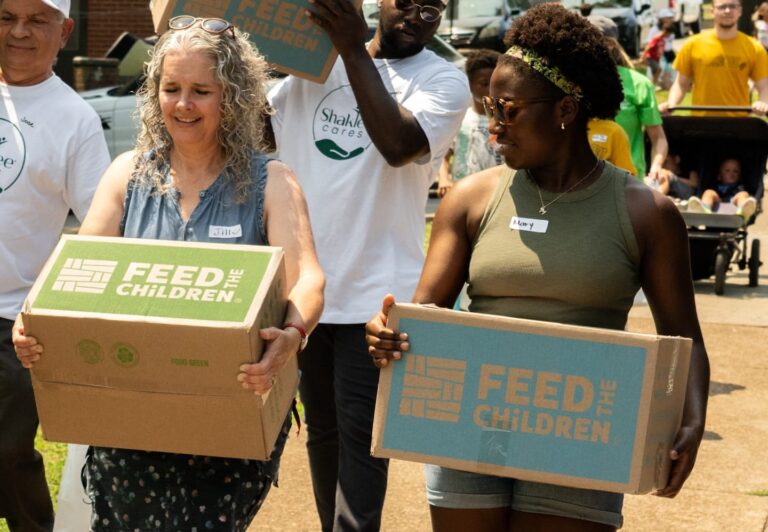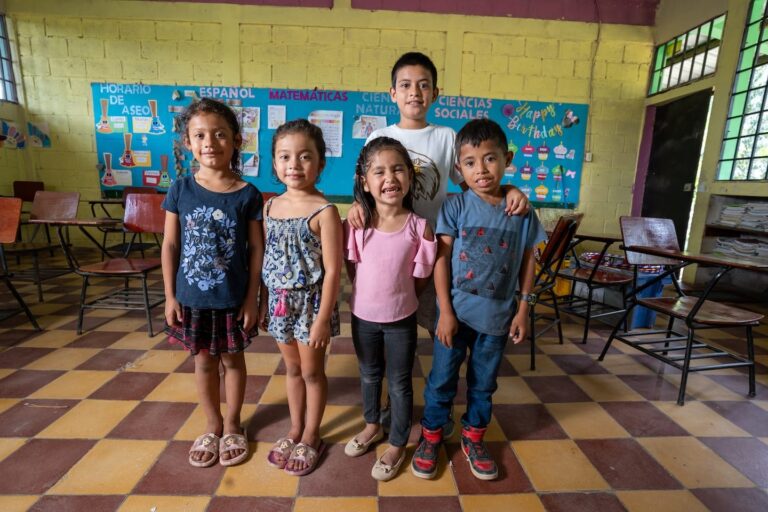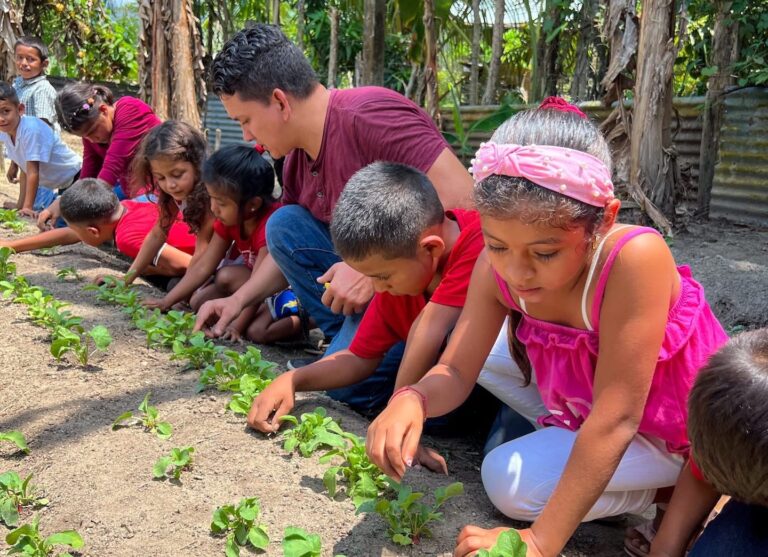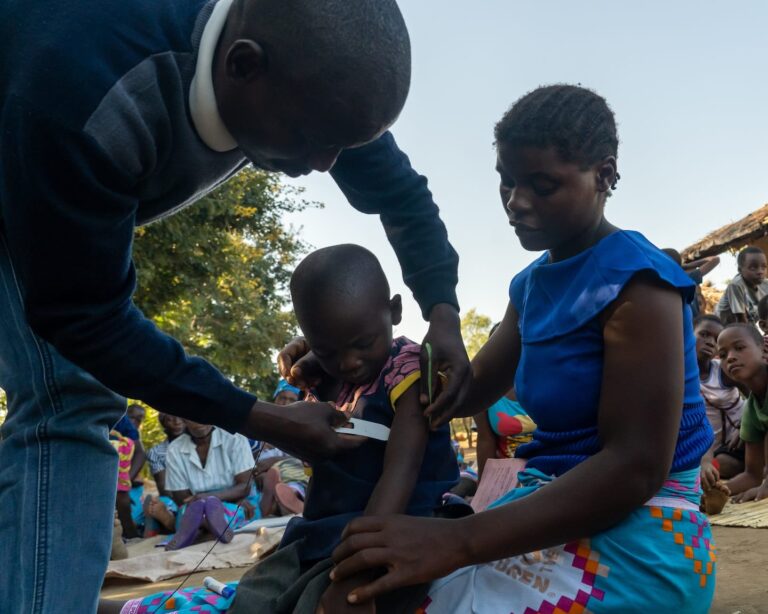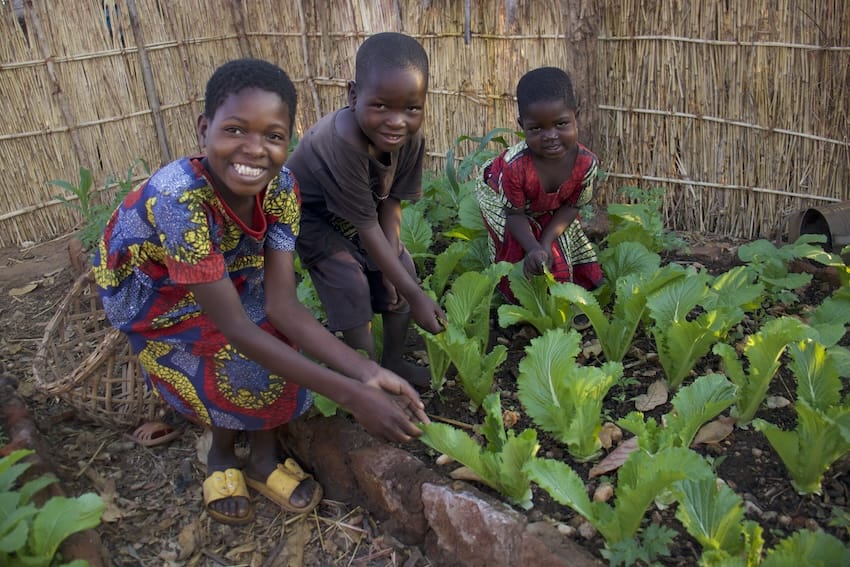
Cultivating a Better Future: The Story of Frasiko’s Family
Each year, on October 16th, World Food Day promotes the human right to food and celebrates the global efforts to ensure that everyone has access to the nutrition they need to thrive. This year’s theme, “right to foods for a better life and a better future,” resonates with our mission at Feed the Children, and today, we’re proud to share a story from Malawi that highlights the transformative power of food.
Frasiko , his wife Felita, and their four children – Takondwa, 10; Malaki , 5; Martha , 3; and Yamikani , 6 months – live in Chilenga, a small village in the rural heartland of Malawi. In the region over one-third of households are below the poverty line.
The family’s primary source of food was their maize crop, but frequent hunger and a monotonous diet took a toll on their health and well-being. For the school-age children, hunger was a barrier to their education.
Takondwa, the eldest child, recalled, “We used to go to school on an empty stomach. When we came back, sometimes we also would find no food and go to sleep hungry.”
This was the reality for the Kamchuwa family: hard work without reward, doing everything they could to survive but still falling short. Frasiko tended their garden before sunrise, while Felita trekked long distances to collect water. Meals were sparse, and breakfast was often skipped.
“I was deeply concerned about the scarcity of food in our household,” Frasiko said. “Consuming the same type of food all the time was not beneficial to my family. My children suffered from malnutrition, which also strained our already-limited financial resources with medical bills.”
The turning point came when Feed the Children’s Child-Focused Community Development (CFCD) program reached their village. Thanks to your donations, the family received vegetable seedlings, fruit trees and– perhaps most importantly– training on how to maximize the yields of their new garden. This comprehensive support not only addressed the family’s immediate nutritional needs but also laid the foundation for long-term stability.
The impact was immediate and profound. The family’s diet diversified, and they started enjoying vegetables like bonongwe (amaranth) and mpiru (mustard greens), both of which are rich in nutrients their bodies had been missing. The four kids eat their vegetables happily!
“From our new garden, my favorite food is bonongwe,” said Takondwa. Malaki added, “I like mpiru mixed with peanut flour from our vegetable garden. It’s very delicious!”
Their new garden didn’t just improve their diet. It opened new financial opportunities for the family. Frasiko began selling bananas and orange-fleshed sweet potatoes, using the money to buy school supplies for his children and any other food they couldn’t grow themselves.
The impact of the CFCD program hasn’t been limited to one family, either. A Ministry of Agriculture official for the area commented on the broader changes, noting, “The distribution of vegetable seeds and fruit seedlings in our area has significantly improved the economic situation of many households.”
Frasiko’s story is a testament to the impact of your support. Their family’s journey from hardship to hope embodies this year’s World Food Day theme, illustrating the profound difference that access to diverse and nutritious food can make in ensuring a better life and a better future, for everyone, everywhere!

